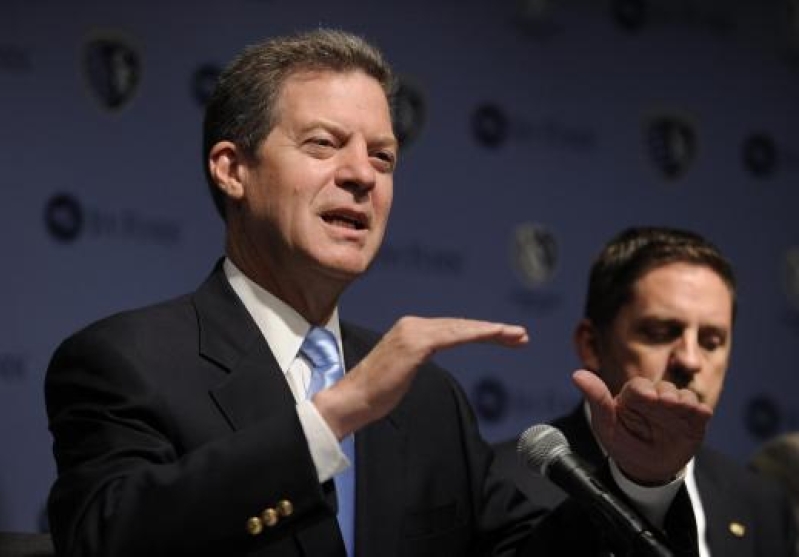
Kansas Gov. Sam Brownback signed SB 175 legislation Tuesday allowing faith-based groups at college campuses to restrict membership to "like-minded" people. Civil liberty group leaders were quick to oppose such a concept, and some are considering legal challenge options. The new law takes effect July 1, and will prevent public colleges and universities in the state from denying funds or campus resources to religious groups that limit their memberships.
"It is a sad and shameful day when the Legislature chooses to stand on the side of providing taxpayer funds to promote discrimination," said Micah Kubic, executive director of American Civil Liberties Union of Kansas.
Kansas already has a religious objections law that prevents state or local governments from limiting people's freedom to express their religion, however that law doesn't address university organizations. This week, Kansas became the second state after Oklahoma to have a college-specific law.
The GOP-dominated Legislature approved the legislation earlier this month, even though the U.S. Supreme Court ruled nearly six years ago that universities can require membership in such groups to be open to all, reports ABC News.
Supporters said the bill was a victory for the freedom to exercise religious beliefs, but opponents called it a veiled attempt to legalize discrimination.
"This is very good, narrow, targeted piece of legislation that will serve the betterment of our college campuses," said the conservative Republican Brownback.
Critics of the bill argue it is broader than its supporters acknowledge, and will, in effect, force minority students and their parents to support groups that would actively discriminate against them. They said the new law will sanction discrimination not only against gays and lesbians, but discrimination based on race, gender, ethnicity or disabilities.
The American Civil Liberties Union of Kansas is considering a legal challenge "very seriously," said Kubic.
"It's a step backward to a time when government was actively enabling discrimination against people based on who they are," she said.
"SB 175 is not just a benign tool to help religious groups ensure that they are made up of co-believers. Its innocuous-sounding language instead creates a new, special right for religious groups to be publicly funded while they discriminate against anyone, they choose. The possibility of discrimination isn't speculative. Religious belief has frequently inspired struggles against discrimination, but on occasion has also been used to justify it. Through SB 175, even the most notorious hate groups would have an irrevocable right to taxpayer funding, provided they cited a religious belief."
The new law reportedly stems from a few on-campus incidents in Kansas and other states, including a lawsuit filed by a Christian group after Washburn University said the group couldn't require student members to recognize the Bible, not the Book of Mormon, as the word of God. The issue emerged after a Mormon student at the Topeka school was forbidden from leading the group's Bible study.
Opponents of the new law have said it could risk the loss of federal grant money, and state dollars would be wasted defending it in court.
The U.S. Supreme Court ruling originated from a California incident. The Christian Legal Society at the University of California-Hastings College of Law was refused recognition and funding after it required all members to sign a form saying they would abstain from premarital or same-sex sexual conduct. In a 5-4 decision, the high court backed the university's right to do so.
The debate in Kansas follows public arguments and religious objections' laws in Indiana and Arkansas.






